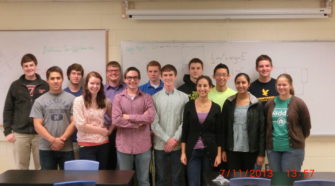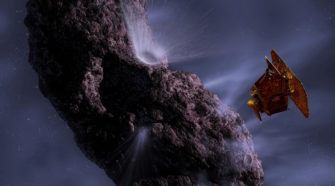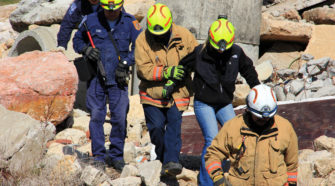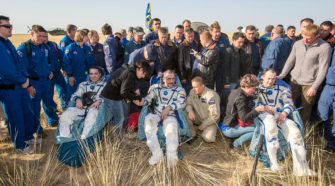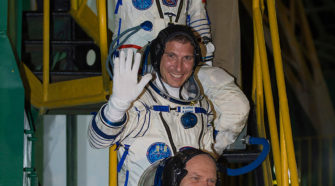Issue #3 (October 2013)
NASA chooses Hampton Roads school team for microgravity experiment
Students at the New Horizons Governor’s School for Science and Technology (GSST) in Hampton, Va., will have the chance to design a microgravity experiment that may some day fly on board the International Space Station (ISS). GSST was one of 14 schools across the country picked for the opportunity by the High school students United …
Deep Impact comet hunter mission comes to an end
After almost nine years in space that included an unprecedented July 4th impact and subsequent flyby of a comet, an additional comet flyby, and the return of approximately 500,000 images of celestial objects, NASA’s Deep Impact mission has ended. The project team at NASA’s Jet Propulsion Laboratory in Pasadena, Calif., has reluctantly pronounced the mission …
FINDER keepers: Technology developed for outer space is saving lives on Earth
The Department of Homeland Security and NASA’s Jet Propulsion Laboratory have developed a new radar-based technology dubbed “Finding Individuals for Disaster and Emergency Response” (FINDER), to aid in detecting victims buried in rubble. FINDER is based on the technology NASA’s Deep Space Network uses to monitor the movements and location of its spacecraft millions of miles …
Landing of Expedition 36
Expedition 36 Soyuz landing – The Soyuz TMA-08M spacecraft with Expedition 36 Commander Pavel Vinogradov, Flight Engineer Alexander Misurkin and Flight Engineer Chris Cassidy (sitting far left) landed in a remote area of Kazakhstan on Sept. 11. They returned to Earth after five and a half months serving aboard the International Space Station. This article appeared …
Launch of Expedition 37 to ISS
Expedition 37 launch – The Soyuz TMA-10M rocket launched from the Baikonur Cosmodrome in Kazakhstan on Sept. 26, carrying Soyuz Commander Oleg Kotov, NASA Flight Engineer Michael Hopkins (left, middle) and Russian Flight Engineer Sergei Ryazansky to the ISS. Their Soyuz rocket launched at 2:58 a.m. local time. This article appeared in the 3rd issue of …

